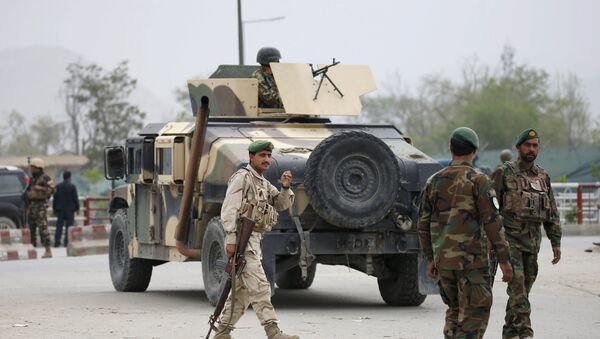According to Kugelman, Afghanistan is "really in a lot of trouble" now, and the fact that the US and UN disagree about how to address the ongoing violence is troublesome.
The US has been an active military presence in Afghanistan for 15 years. "One of the unfortunate things about the US role in Afghanistan, through all these years, is that it really struggled to articulate exactly why it is there."
The problem is "delicate," the analyst said, observing that not much is heard in Washington DC and the Western media about the ongoing war in Afghanistan.
There is very little transparency regarding what is really going on in Afghanistan, Kugelman asserted, adding, "that's one area where the US may not let on exactly what the nature of civilian costs are."
"We are never going to know what's going on [in Afghanistan]," he affirmed.
Talking about the future of war in Afghanistan, Kugelman pointed out that there has been a reduction in US troops, with no plans to replace them.
According to Kugelman, incoming President-elect Donald Trump opposes a long-term US military presence in Afghanistan. However, the President-elect's advisers are pushing the narrative that much of the terrorism aimed at the West originates in Afghanistan, in spite of Trump's desire to reduce the global American military footprint. Kugelman tacitly agrees with Trump in that regard, suggesting that the US must do less in the world and be more focused on what is happening within its own borders.
"I do think that the US is not going to launch new wars. The exception is its fight against Daesh," said Kugelman. However, that fight should not become solely American, he warned, as it must be regarded as a global campaign.
There have been reports that following the separation of Daesh from Al-qaeda, there has been a fracturing of purpose between militant groups, as the Taliban has fought against Daesh in eastern Afghanistan.
But the threat of an alliance remains, Kugelman admits, suggesting that the thought of the "Taliban forces joining force with Daesh in Afghanistan is very scary."
The analyst expressed his desire that there would not be "more US-led conflicts across the world, as we certainly do not need that."

